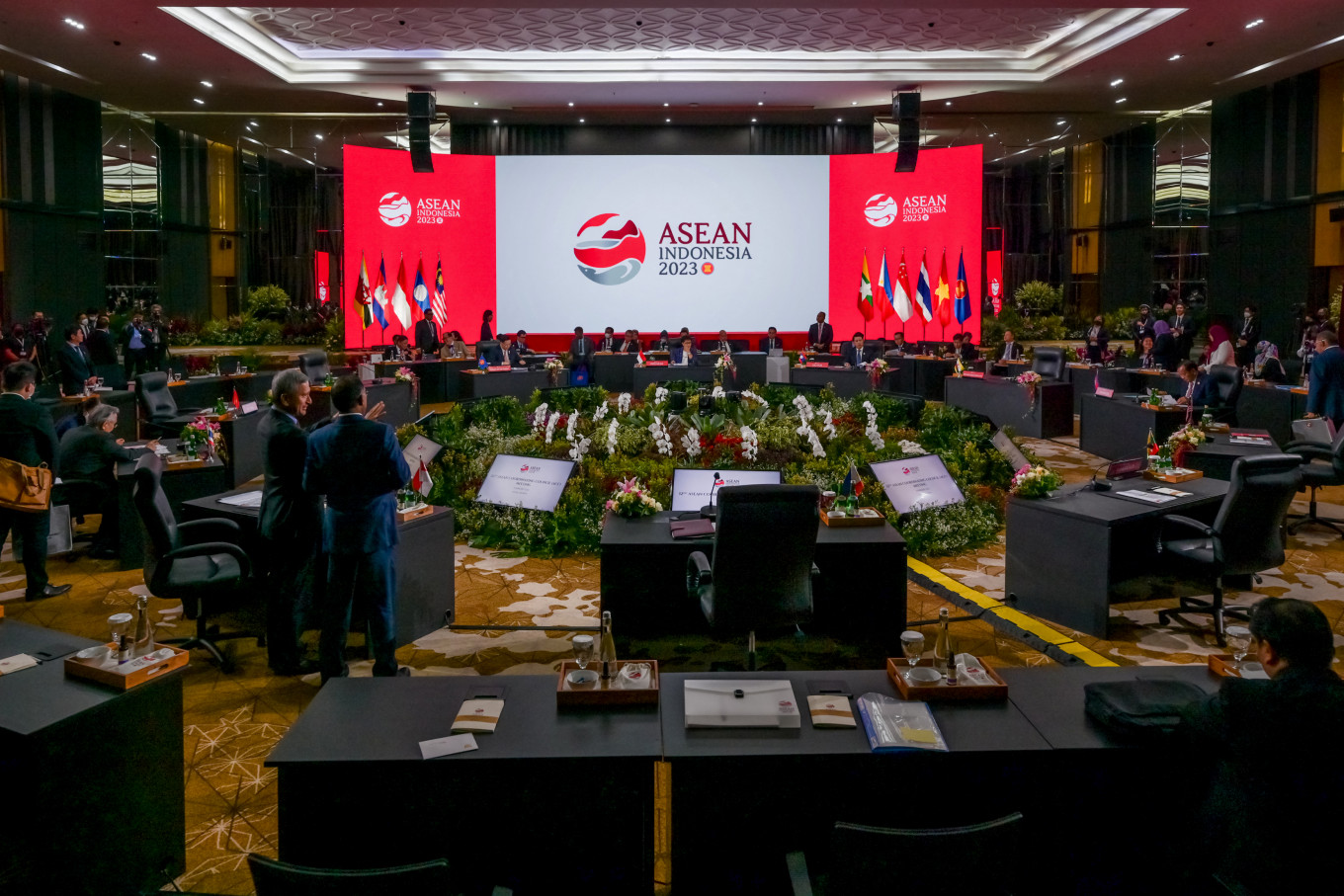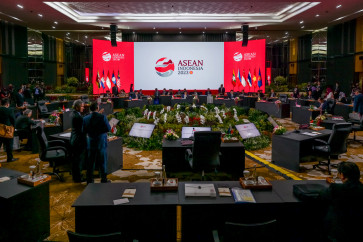Popular Reads
Top Results
Can't find what you're looking for?
View all search resultsPopular Reads
Top Results
Can't find what you're looking for?
View all search resultsASEAN reaches important trade facilitation milestone
In the region, no other trade facilitation tool is arguably as important as the trade-related regulatory transparency provided by the ASEAN Trade Repository (ATR).
Change text size
Gift Premium Articles
to Anyone
 The ASEAN secretary-general and foreign ministers (except Myanmar) attend the 32nd ASEAN Coordinating Council Meeting in Jakarta on Feb. 3. The foreign ministers in attendance were Indonesia's Retno LP Marsudi, Malaysia's Zambry Abdul Kadir, Brunei's Erywan Yusof, Singapore's Vivian Balakrishnan, Thailand's Don Pramudwinai, Vietnam's Bui Thanh Son, Laos' Saleumxay Kommasith, The Philippines' Enrique Manalo, Cambodia's Prak Sokhonn, Timor Leste's Adaljiza Magno and ASEAN Secretary-General Kao Kim Hourn.
(AFP/Bay Ismoyo)
The ASEAN secretary-general and foreign ministers (except Myanmar) attend the 32nd ASEAN Coordinating Council Meeting in Jakarta on Feb. 3. The foreign ministers in attendance were Indonesia's Retno LP Marsudi, Malaysia's Zambry Abdul Kadir, Brunei's Erywan Yusof, Singapore's Vivian Balakrishnan, Thailand's Don Pramudwinai, Vietnam's Bui Thanh Son, Laos' Saleumxay Kommasith, The Philippines' Enrique Manalo, Cambodia's Prak Sokhonn, Timor Leste's Adaljiza Magno and ASEAN Secretary-General Kao Kim Hourn.
(AFP/Bay Ismoyo)
T
he ASEAN Trade Repository (ATR) has operated effectively after five years of work under the European Union’s technical assistance program known as ARISE Plus (ASEAN Regional Integration Support by the EU).
ARISE Plus provided over 21 million euros of funding to ASEAN to increase regional economic integration, lower trade barriers, foster the rule of law, and support ASEAN’s private sector, especially small and medium enterprises (SMEs) and particularly women-owned businesses, through a number of trade facilitation instruments such as the ASEAN Customs Transit System, the ASEAN Solutions for Investment, Services and Trade and many mutual recognition agreements or harmonized standards in the areas of food safety, organic farming and pharmaceuticals, inter alia.
However, no other trade facilitation tool is arguably as important as the trade-related regulatory transparency provided by the ATR.
In fact, with respect to the creation of the ASEAN Economic Community (AEC), transparency is a fundamental catalyst for economic development, cross-border investment and trade and ASEAN regional integration.
The ASEAN Trade in Goods Agreements (ATIGA) requires that an ATR be established and populated with all the trade and customs laws and procedures of all ASEAN member states. It must be made accessible to the public through the Internet, for free and with searchable information available in English.
This information is what ASEAN businesses need to trade within the region and place their products on the markets of ten ASEAN Member States that still apply different rules and procedures.
The ATR must contain nine categories of trade-related information of relevance to trade in goods in each of the 10 ASEAN member states, notably the tariff nomenclature used in their Customs codes; the preferential and non-preferential tariff rates applied upon importation of any product into their markets; their respective rules of origin; the so-called non-tariff measures (NTMs), such as environmental requirements, sanitary and phytosanitary standards, consumer protection obligations and conformity assessment procedures that apply to products sold in their markets; their respective national trade and customs laws and rules; the import/export procedures and documentary requirements to be fulfilled at the border; the administrative rulings by their Customs authorities; their best practices in trade facilitation; and the list of authorized traders in each of their jurisdictions.


















